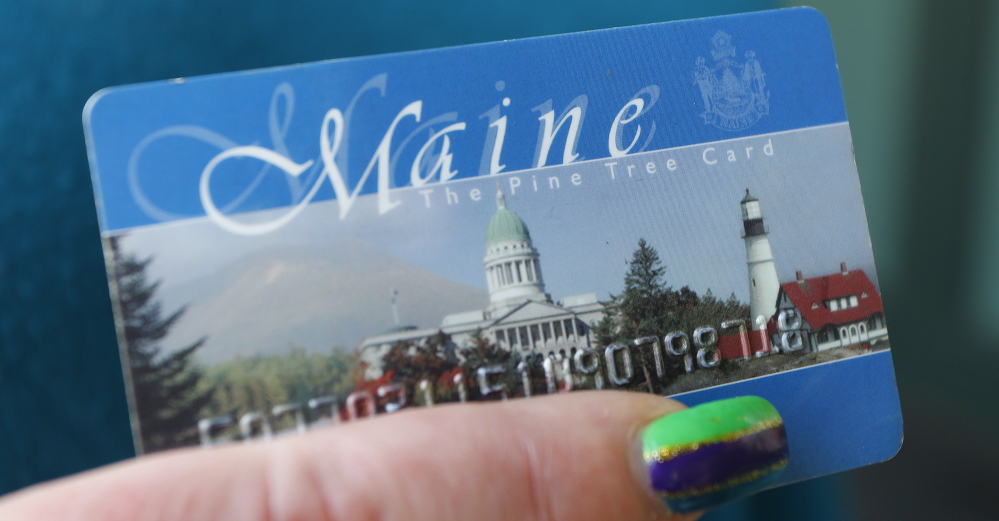After squaring off against the federal government over putting low-income Mainers’ photos on the cards used to access food stamps, the Maine Department of Health and Human Services is now going to the mat on another issue: requiring face-to-face interviews for recipients who opt out of the photo EBT program.
This inflexibility is baffling, given the LePage administration’s emphasis on two worthy goals: preventing fraud and ensuring that taxpayer assistance goes only to the truly needy. In-person interviews aren’t the way to do it, researchers have found. Neither are photo EBT cards. And the time and money the DHHS is expending on doing battle with the federal government would be better directed toward putting food on the tables of hungry Mainers.
The state-federal conflict came into sharp focus in November, when DHHS Commissioner Mary Mayhew got a letter from a regional official with the U.S. Department of Agriculture, which oversees the Supplemental Nutrition Assistance Program (another name for food stamps). The USDA threatened to cut federal administrative funding for Maine’s food stamp program unless the state addresses concerns about photo EBT cards and in-person interviews.
On Dec. 18, Mayhew fired back. She blasted the USDA for its opposition to mandated face-to-face interviews for food stamp recipients who have opted out of photo IDs, and she declared that Maine has made clear that photo cards are voluntary. If the federal agency stands by its threat to reduce funding, she said in a letter, Maine would “have to re-evaluate our partnership with the federal government.”
It’s unclear what steps the DHHS is considering to sever its ties with the USDA. But it is clear that Maine would take a big hit in the wallet if the USDA pulled out of SNAP administration here: The federal government pays half the program’s administrative costs (about $8.9 million for Maine in 2013).
Meanwhile, the state is going full steam ahead with its controversial food stamp policies, despite their documented drawbacks. While Gov. LePage stressed learning from the experience of other states in his inauguration speech Wednesday, that’s not what Maine is doing in this arena.
EBT cards with photos cost about $8 per card, as opposed to 23 cents a card without the photos, according to a 2012 study by a Pennsylvania legislative panel. Missouri discontinued the use of photos on EBT cards after a 2001 state audit revealed no significant cost savings from the program. “Federal regulations allow any family member to use the (EBT) card, which renders the photographs useless for fraud” deterrence, according to the audit.
Mandating face-to-face interviews overlooks the many legitimate reasons why someone re-applying for SNAP benefits may not be able to show up in person: work, school, illness, transportation difficulties, the need to care for a relative or distance from the nearest DHHS office. By law, all of these situations are grounds for a hardship waiver, which allows the food stamp review to be done by phone.
Two-thirds of all states now waive the face-to-face interview requirement in favor of phone interviews. They aren’t for everyone: Some people may not have a phone, while others may want to communicate sensitive information in person.
Many food stamp recipients, however, have seen fewer child care, transportation and work conflicts as a result of the change. And state agencies have been able to cut administrative costs, interview more applicants and improve their level of efficiency – without sacrificing accuracy, as measured in overpayments, underpayments or SNAP payments to households that don’t qualify for them.
There’s no one solution to the challenge of helping poor people feed their families, while keeping state aid out of the hands of those who aren’t in need. But a lot of other states have developed strategies that work, and Maine would be wise to learn from them rather than insisting on going its own way.
Send questions/comments to the editors.


